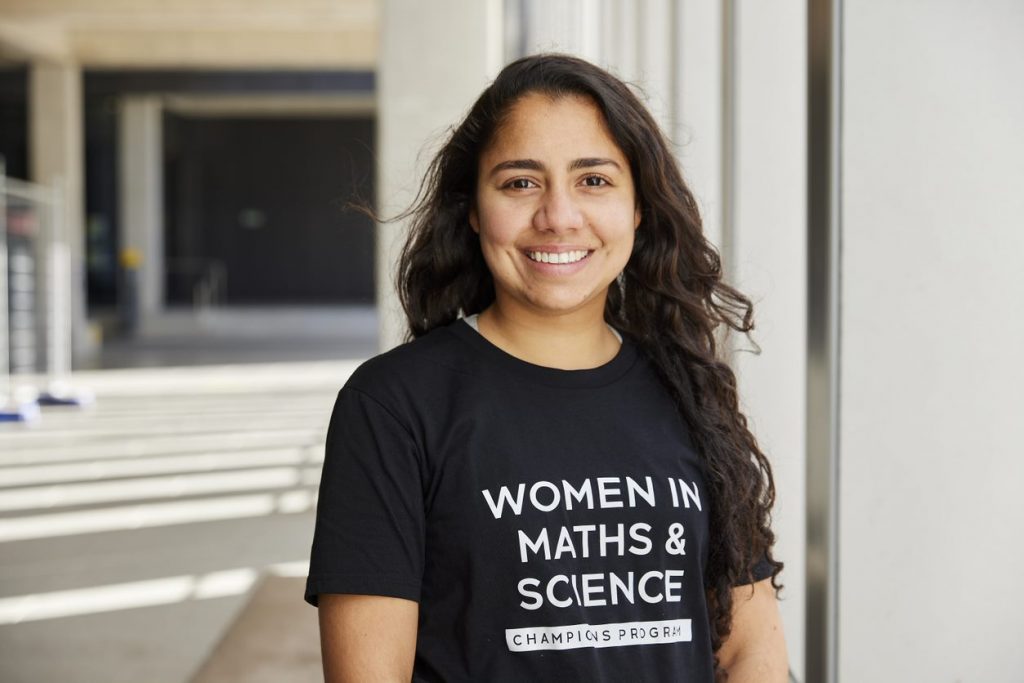By Charuni Pathmeswaran
Thay is a marine biologist investigating the impacts of the 2019/20 Black Summer fires on estuaries. Prior to pursuing her PhD in Australia, she completed her Honour’s and Master’s degrees in Brazil. She has worked on projects involving population dynamics, primary productivity, taxonomy, and ecotoxicology, with a special interest in coastal management.

What sparked that initial interest in marine biology for you?
I knew from a young age that I wanted to become a marine biologist. My family didn’t believe me at the time, because kids keep changing their passions. But I kept saying I wanted to become a marine biologist. I grew up by the beach. My dad would always take me to the ocean. I would spend hours picking stuff at the beach. I was always fascinated by the ocean and life underwater. The more I learned the more I loved it.
What excites you most about your work?
This project excites me a lot because of its applicability. We had previously collected data from these estuaries. So, when the fires happened it gave us an opportunity to do an impact assessment. I like to know that I am working on something that is very important. I like the whole field of coastal management. I like the job of an environmental scientist, looking at the impacts of our activities on the environment. And learn how we can minimize that. This is what motivates me to do my work.
What do you find most challenging about the work you do and how do you tackle it?
My current work involves a lot of chemistry, and this is not within my expertise. I did a bit of chemistry for my undergrad, but my background is primarily in marine biology/ecotoxicology. One of my supervisors is a chemist and he has a lot of experience in the area. So, he has been guiding me well.
What does a typical day look like for you?
This depends on which stage of my project I’m in. Last month I had a lot of field work to do. On such days we would spend the entire day out in the field. We were four women driving massive trucks and towing boats around the NSW coast. Even our boating officer is a woman. It was very exciting! Very long hours in the field with a lot of heavy work is then usually followed by lots of lab work. Then statistics and writing, as well as attending workshops and conferences. It’s very dynamic and we get to do a little bit of everything.
What are your interests outside of science?
I love spending time by the water, especially at the beach. I am currently learning to surf here in Australia. It keeps me in the water. You put a wetsuit on and meet new people. I’ve been learning it for the past two months and I’m really enjoying it!
Words of advice for young women interested in pursuing a career in STEM?
GO FOR IT! I can assure that you won’t get bored. You discover something new every day.
What are you most proud of in your career so far?
Doing my PhD in Australia. By the time I started my undergrad I had decided that I wanted to do my PhD overseas. That was a really challenging goal to achieve because English is not my first language. I was always fascinated by Australia. Now that I am here, at a great university and with great supervisors, I could not be happier. I am also grateful for all the facilities and resources available for supporting my research.
What would you like to see change in the future for women in STEM?
I would like to see more women in top positions. I was very determined to have a female supervisor and it’s being very important to me to have them as role models. I want to see more women in higher positions especially in developing countries, like in my home country Brazil.
Post-PhD plans?
When I arrived in Australia, I thought 4 years was a long time and I hoped I would like it. I can safely say that each day I love it even more. I have decided that I want to stay in Australia. Hopefully, working as a scientist on a project excites me.
Follow Thay on Twitter
